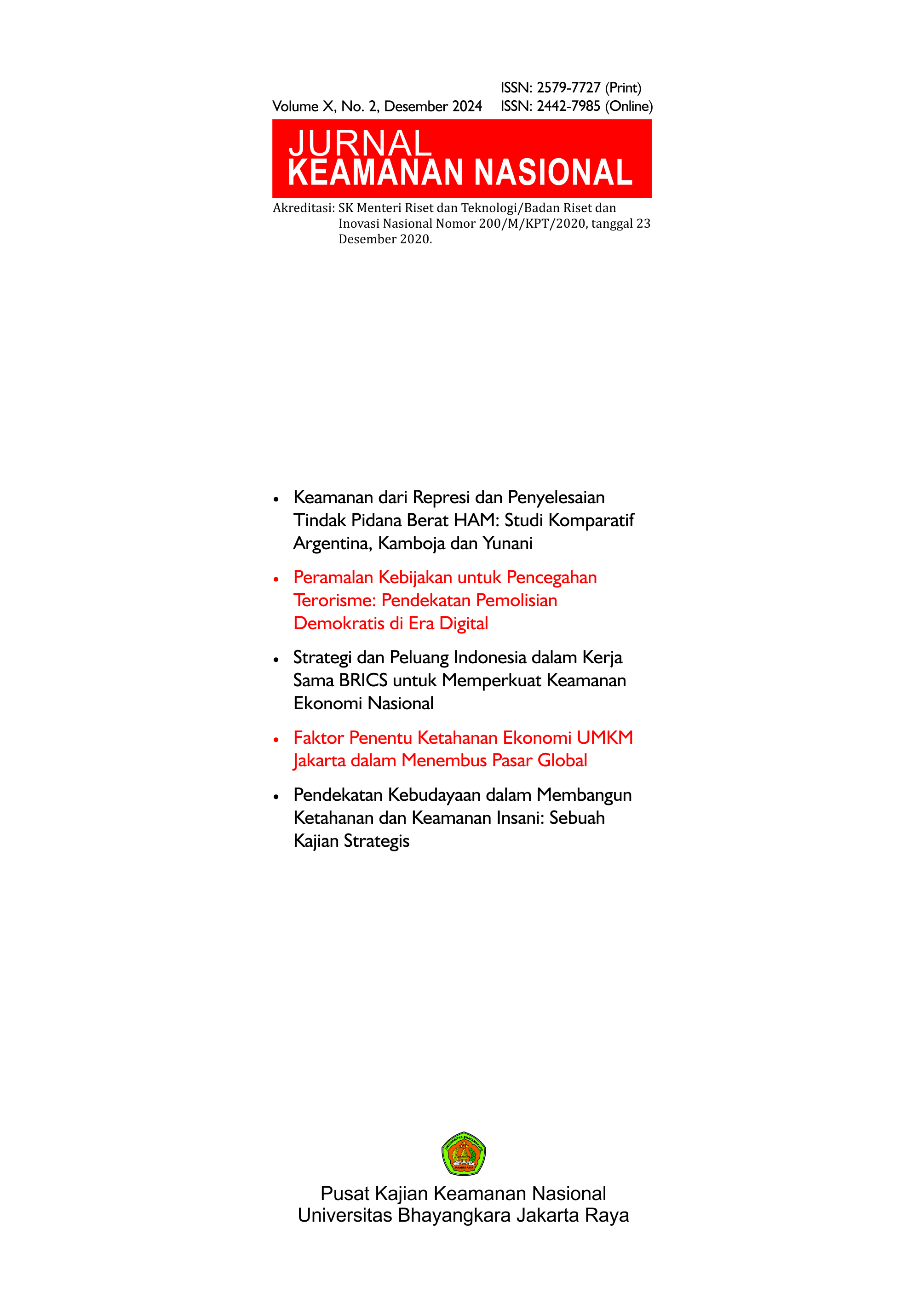Peramalan Kebijakan Untuk Pencegahan Terorisme: Pendekatan Pemolisian Demokratis di Era Digital
DOI:
https://doi.org/10.31599/3vj01797Keywords:
terrorism, democratic policing, national security, evaluation, forecastingAbstract
This research elaborates on terrorism prevention in Indonesia by applying democratic policing in terms of national security. The discussion of thesis research conducts an evaluative historical review of preventive policy by looking at global impact, terrorism discourse, and the transformation of terrorist networks since 2000.
This research uses a descriptive qualitative approach. The interview method with terrorist prisoners as primary data was further deepened by literature review, and observation as secondary data. The results of this study indicate that the future of terrorism is still growing.
Forecasting policies in the next 10 years are needed to respond to these issues by:: (1) in combating terrorism propaganda, a necessary response is to establish partnerships with the private sector, strengthen virtual police, and community empowerment and local intelligence; (2) in preventing terrorist recruitment, a social policing is done, strengthen financial intelligence, and increasing social welfare, and (3) in terms of terrorism act, a response is necessary to prevents social division, regional conflict resolution, and strengthen humanization program.
Downloads

Downloads
Published
Issue
Section
License
Copyright (c) 2024 Ir. Djuni Thamrin, M.Sc., Ph.D, Slamet Urip Widodo (Author)

This work is licensed under a Creative Commons Attribution 4.0 International License.
Please read and understand the copyright terms for submissions to this journal.
Copyright Notice
The Jurnal Keamanan Nasional is under the Creative Commons Attribution 4.0 International (CC-BY 4.0) License, according to which:
1) Authors retain copyright and grant the journal the right to first publication, with the work simultaneously licensed under the Creative Commons Attribution (CC-BY 4.0) that allows the sharing of articles published with the acknowledgement of authorship and the initial publication in this journal.
2) The authors are authorized to make additional contracts separately for distribution of the version of the work published in this journal (for example, publication in an institutional repository or as a chapter of the book), as long as there is recognition of authorship and initial publication in this journal.
3) Authors are authorized and encouraged to publish and distribute their work online (for example, in institutional repositories or on their personal pages) at any time before or during the editorial process, as it increases the impact and reference of the published work.












